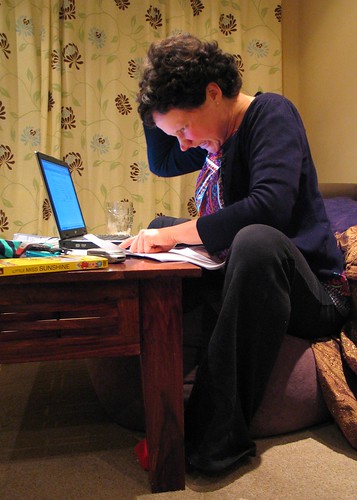I didn't know what Empire Zero (Act I: Tinder and Tear) was about when I began reading it, and after the first few paragraphs didn't care. It was written so well, I was ready to just go along for the ride.
But it wasn't always a smooth journey. At the beginning the story threw me into the life of a young man on a quest, going through a strange world. Dangers abound here, in a land where humans, dwarves and ogres dwell...but do not really coexist. The races are at odds, and the journey is fraught with peril.
I'd have happily stayed with that tale, but the author began to introduce different, concurrent storylines. Three main stories create Act I of Empire Zero, and it gets pretty confusing pretty quickly. The author makes it easier by naming chapters after each main story, dividing them into Brother, Monster and Thief.
The Brother story revolves around Castor, who must travel across the dangerous world to procure medicine. Monster tells us the story of two ogre brothers, and Thief introduces us to Maeve.
The chapter names made it easier to keep the divergent stories sorted, but didn't improve the disjointed feeling of the narrative. I wanted to stay with Castor and the somewhat motley crew he assembled around himself. I wanted to know if he would complete his mission. I did get some answers, but lots of extra stuff also.
And as for Castor...there's not much resolution. It's clear that his adventure will continue in the next book, and I'm anxious to see what else will happen to him. Others stories do find more of an ending, though not necessarily satisfaction.
The writing itself is descriptive but not overly so. It flows well and has a perfect pace. I was hoping something less tragic would develop between Castor and Raine, but perhaps there's still time for that. Left without much of an ending, there's not much else to do but wait for more of the story and see what else will develop. The narrative was a little disorganized and hard to follow, but the quality of the writing makes Empire Zero's first act a totally worthwhile read. I'll definitely stick it out for the next book.
"He decided he would write not of the future, but of the present, and how lost he felt in this world—but he was relegated to committing everything to memory..."
I'd have happily stayed with that tale, but the author began to introduce different, concurrent storylines. Three main stories create Act I of Empire Zero, and it gets pretty confusing pretty quickly. The author makes it easier by naming chapters after each main story, dividing them into Brother, Monster and Thief.
The Brother story revolves around Castor, who must travel across the dangerous world to procure medicine. Monster tells us the story of two ogre brothers, and Thief introduces us to Maeve.
The chapter names made it easier to keep the divergent stories sorted, but didn't improve the disjointed feeling of the narrative. I wanted to stay with Castor and the somewhat motley crew he assembled around himself. I wanted to know if he would complete his mission. I did get some answers, but lots of extra stuff also.
And as for Castor...there's not much resolution. It's clear that his adventure will continue in the next book, and I'm anxious to see what else will happen to him. Others stories do find more of an ending, though not necessarily satisfaction.
The writing itself is descriptive but not overly so. It flows well and has a perfect pace. I was hoping something less tragic would develop between Castor and Raine, but perhaps there's still time for that. Left without much of an ending, there's not much else to do but wait for more of the story and see what else will develop. The narrative was a little disorganized and hard to follow, but the quality of the writing makes Empire Zero's first act a totally worthwhile read. I'll definitely stick it out for the next book.
"He decided he would write not of the future, but of the present, and how lost he felt in this world—but he was relegated to committing everything to memory..."
























